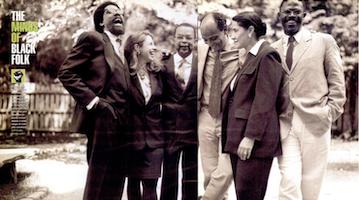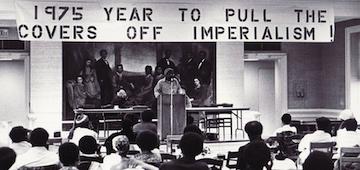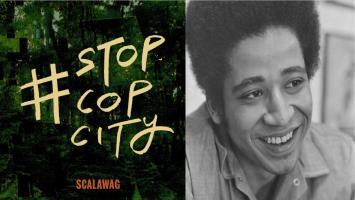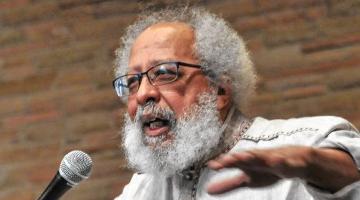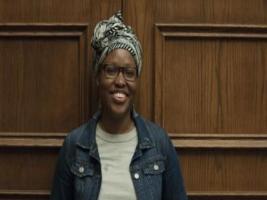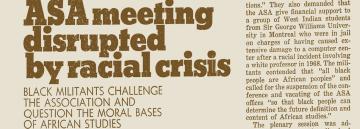White folks at the university decided to set things right on race – without consulting Africana Studies.
“If we are to take this problem seriously and do it right, certain people, departments, and disciplines need to step aside.”
Not long ago ago, I attended my final chair’s meeting of the summer and did so with great zeal. Why the enthusiasm, especially in times of such administrative fatigue? The topic, “University Actions in the Context of Black Lives Matter.” As director of Africana Studies at my institution, you can imagine such a topic is of deep and ethical interest to me. However, I was struck not by the banal platitudes of inclusivity beyond recruitment and retention, but by the administrative and financial support -- especially following such a difficult fiscal year -- earmarked for interdisciplinary course development for teaching race across the curriculum. I found it odd that Africana Studies, a field whose object of study is centered on race, was not consulted, although I am sure the administration would consult an infectious disease department in its fall restart plans if it had one. What I find deeply troubling about the general disregard and dishonor is that administrators, and many faculty for that matter, are quick to evoke the names of the recently slain, but will not make their interests in “overcoming racism” about antiblackness at least momentarily.
Ad nauseum. While racism is real, it is not antiblackness. While white supremacy is real, it is not antiblackness. That is, antiblackness constitutes something altogether different than racism, implicit bias, white privilege, racial animus, and much more. It is not that these social facts don't exist or are not important topics and problems for universities to confront and help solve, it is that they do not attend to the root of the problem, for they are merely, yet dangerous, symptoms. Of course classes should be developed and offered on said topics, but not at the expense of decentering (anti)blackness.
“Administrators are quick to evoke the names of the recently slain, but will not make their interests in ‘overcoming racism’ about antiblackness.”
The problem here, and the one that most of my colleagues across the academy infinitely fail to understand is the difference between scale and kind. At the level of scale, there are similarities in experiences with oppression, and dare I say, marginalization. That is Indian genocide, the Holacaust, and various of genocidal exercises of power empirically look similar. However, at the level of kind, meaning the structure of humanity, there are vast differences that people simply paper over. For example, the Twi, Hasusa, and Wolof of Africa went into the slave barracoon and slave ship and came out black. By way of comparison, the Native American, by which Thomas Jefferson was crystal and cogently clear, "Kill the Indian, not the man." In short, sentience/anthropos does not bequeath humanitas to all -- evidence that maybe it’s time to rethink the humanities. For Darren Wilson, Michel Brown's executioner, Brown was the devil incarnate, not human. And, I could go on and on, with example after example, but the ballast of new murders, immediate or slow, just got longer.
“The problem is the difference between scale and kind.”
Formidulosus. Given the expertise of Africana Studies scholars at my institution, it would seem that development money would be better served in helping create a more robust Africana Studies department where Africana Studies is a requirement for graduation. And by this I do not mean a power and privilege or social justice requirement as is being discussed at various other institutions throughout the country. By way of analogy, one wouldn't give money to a podiatrist to find a cure for cancer. Yet based on the opportunity that my colleagues now have, given their productive online summer labor which generated a small surplus of money, that logic is a reality. Lets face it, teaching about race often looks provocative and critical, but its ends more often or not are really nothing more than cultural inclusion and celebration. In short, assimilation redux. I fear that throwing development money at teaching about race, and not antiblackness, will translate into yet another renovated diversity requirement. That is institutions will throw some new name on these newly designed courses and call it progress -- social justice for a new age. But as Malcolm X once said, "Just because a cat has kittens in an oven, that doesn't make them biscuits."
If history is our guide, we can see that Black Studies departments were established because the traditional disciplines, yes all of them, could not and still cannot think antiblackness. So why ask them, once again, to develop courses about that which they do not know?
“Throwing development money at teaching about race, and not antiblackness, will translate into yet another renovated diversity requirement.”
Periculum. To be clear, having Africana Studies departments and programs spearhead teaching about race is not a universal remedy. When Africana Studies moves beyond identity politics and superficial forms of representation, it can no doubt change minds, ideological positions, and much more. Fortunately, some Africana Studies scholars understand the critical purchase in shifting the geography of reason, especially as it relates to understanding antiblackness. Unfortunately, we live in a time, largely because of the ways diversity initiatives and radical histories have been twisted where people think being an Africana studies scholar means or is equated with being a radical, or at least radically sympathetic to some cause concerning oppressed people. The reality is, Black studies was quarantined and sheltered in place before such terms for describing the new normal became de rigueur. Throwing development money towards new pedagogical platforms about the overly capacious term race are just the latest in the longue durée
of black anger management. In some places, the current orientation of the discipline has been emboldened by corporatized critiques of white fragility and anti-racism.
Relatedly, requiring an Africana Studies class for graduation comes with its own problems. The problem with such a proposal, and I am by no means backing down from such a proposal if done correctly, is not that conservative intellectuals would disapprove, but so would my liberal and progressive colleagues. The pretense and the policing from them would be enormous and tiresome. They would, no doubt, point us in the direction that oppression and racism are complex social phenomena putting the kibosh on any and all analysis of antiblackness. To boot, renovated identity politics would emerge allowing many to state with a degree of polite firmness that faculty are engaging in oppression olympics.
“Black studies was quarantined and sheltered in place before such terms for describing the new normal became de rigueur.”
In the end, calling for curriculum changes to teach race across the curriculum is nauseating, fear inducing, and dangerous, for it is just another way for non-black people of color and "good" white people to redeem themselves: that is save their souls, to save their being in this world. So, if we are to take this problem seriously and do it right, certain people, departments, and disciplines need to step aside. Administrators need to trust in the intelligence and preparation of some of their faculty. Just because certain people teach about race doesn't mean that they attend to the paradigmatic force that is antiblackness. If we were to measure and determine breaches in responsibility, fault, and damages my university, and many others no doubt, are deeply negligent when it comes to overcoming racism. The infinite rehearsal of reacting, rather than responding to antiblackness simply fortifies the problem. But maybe that’s the point.
So when fall comes, and my colleagues are ardently, but unknowingly safeguarding the walls of antiblackness as paradigm, Africana Studies will continue to be what it is and always has been at some places, a small fugitive space where students are always welcome to study, learn, and grow.
P. Khalil Saucier, is Director and Professor of Africana Studies, Bucknell University, pks008@bucknell.edu
Please join the conversation on Black Agenda Report's Facebook page at http://facebook.com/blackagendareport
Or, you can comment by emailing us at comments@blackagendareport.com

